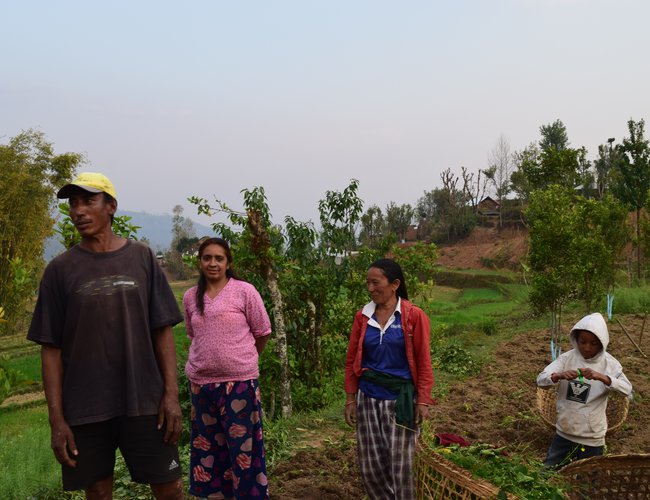
Krishna Bahadur Shrestha, a 48-year-old man, spent more than two years in Afghanistan and over 10 years in Kathmandu. However, he decided to return to his birthplace, Dawa of Bhojpur Municipality ward 4, with a strong determination to pursue a livelihood in livestock and agriculture.
Unfortunately, Shrestha faced a setback when he lost his investment in poultry due to the culling of 3000 chickens infected by bird flu in Kathmandu. Despite this, he returned home amidst the COVID-19 pandemic in 2021 and embarked on establishing a modest commercial agriculture farm.
During the process of starting his venture, Shrestha was fortunate to be selected for CLA training by Bhojpur Municipality, based on the recommendation of his ward. After successfully completing the 390-hour CLA levels, he became a certified veterinary technician authorized to administer primary-level medicines to cattle.
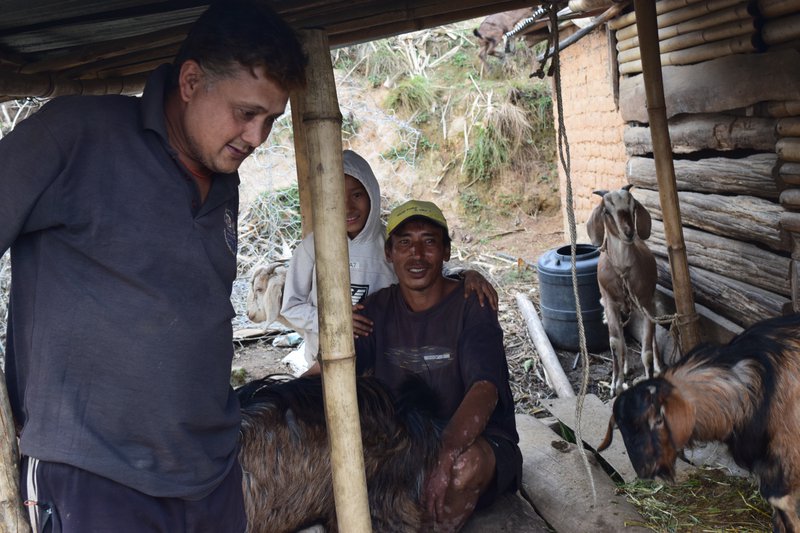
Prior to starting his poultry business in Kathmandu, Shrestha had no formal training in the field of livestock and agriculture, which resulted in significant economic losses. However, after completing the CLA course, he acquired valuable skills and gained minimum knowledge about various diseases' symptoms and the administration of appropriate medicines. Additionally, Shrestha also learned about the state of the supply chain for agricultural products and livestock.
Currently, Shrestha is content with his work, earning approximately 800,000 (US$6000) annually through the cultivation of off-season vegetables, oranges, goat rearing, and maintaining a flock of around 500 chickens
Shrestha expressed that if he had received training and knowledge earlier, he would not have experienced significant financial loss. Now that he has completed his training, he no longer has to worry about seasonal diseases affecting his chickens, goats, and cattle.
He also gained basic knowledge about agriculture. Shrestha owns 30 ropanies of land with three tunnels, where he cultivates off-season vegetables, has 300 orange trees, 10 goats, two cows, and a den to house 300 chickens at a time. He was nominated for CLA training by the Livestock Division of Bhojpur Municipality, along with 20 other individuals from his ward.
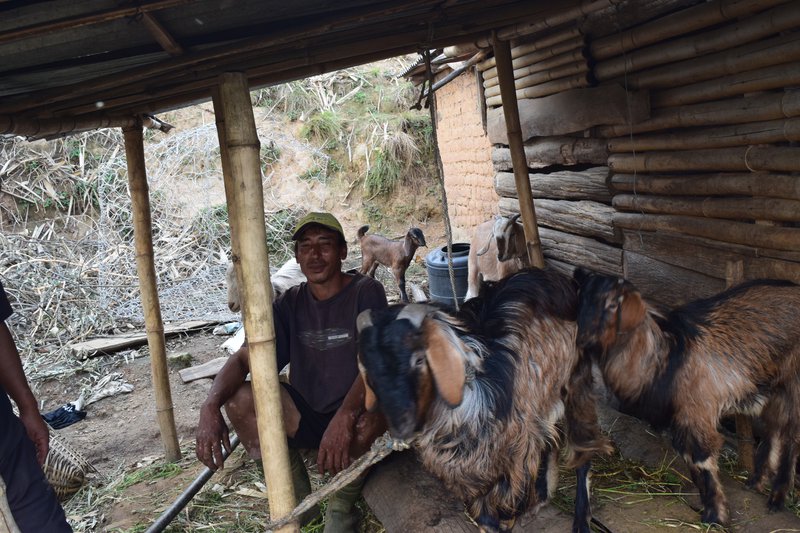
After completing the training, he is now a certified Community Livestock Assistant with a CTVT certificate. Another individual, Govinda Khadka, 38, who had returned home after working in Qatar for a decade, also completed CLA training after being nominated by the ward office. Despite his years as a migrant worker, CLA was his first formal training with a certificate to administer basic medicines and vaccines to cattle, goats, pigs, and chickens.
Khadka, who cultivates off-season vegetables and raises 13 goats, two cows, and 150 chickens, earns approximately Rs.700,000.00 (US$5000) annually. The training has been instrumental in enhancing my understanding of agricultural practices, plant diseases, market chains, and the production of compost and non-toxic herbal pesticides.
Shrestha and Khadka, along with 20 others, have gained significant technical knowledge through the training. These trainees have now become valuable assets for the municipality's livestock division. Recognizing their skills, the division has included them in a technical group to be deployed during emergencies. Last year, Bhojpur Municipality faced an unexpected outbreak of lumpy skin disease among cows, oxen, and buffaloes in the region.
Despite causing panic nationwide, the disease had a severe impact on the eastern region, particularly Bhojpur. Upon identifying the trainees who completed the Level I (390-hour) CLA program under the SAMRIDDHI Project, the municipality deployed all 40 trainees from two separate events to control the disease outbreak. "These trainees, who were close to finishing their course, played a crucial role in providing essential care and treatment to over 250 cattle," stated Santosh Katuwal, the veterinary officer of Bhojpur Municipality.
The Livestock Section of the municipality played a crucial role in the success of this innovative approach by providing supervision and guidance to the field trainers. By administering medicine and injections based on the identified symptoms, they were able to save the cattle from the risk of death. This approach not only showcased the potential of local human resources as valuable assets for the local government during times of need but also highlighted the importance of their contribution. Mayor Kailash Kumar Ale acknowledged the significance of the trainees in bridging the gap of technical manpower for livestock. Without their assistance, it would have been extremely challenging to reach a large number of at-risk cattle within a short period. Shrestha emphasized that the lack of skills and techniques in cattle rearing, as well as knowledge in various agricultural aspects, had previously hindered their production. However, with the implementation of this approach, they can now efficiently manage time, increase production on smaller areas of land, and provide timely treatment to their livestock.
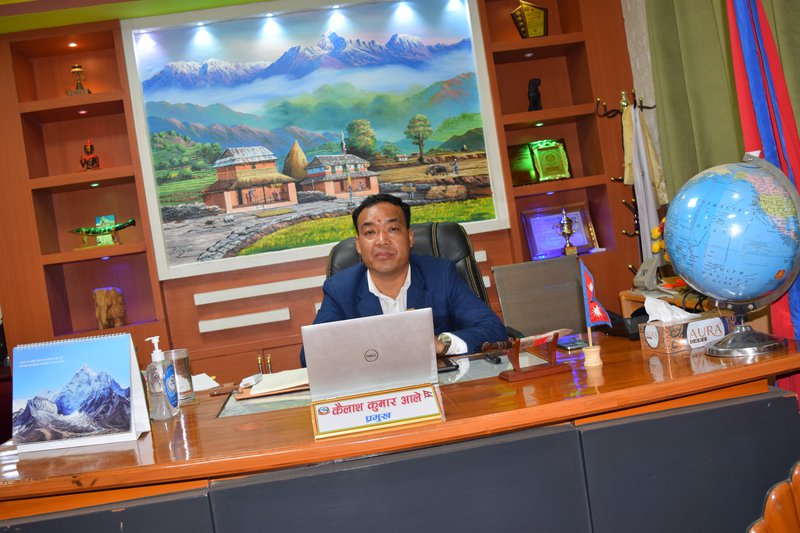
From the hillside farmer in Bhojpur, Koshi Province, Birendra Chimariya, a resident of Malan Tole in Chandraur Municipality ward 9, located approximately 9 kilometers south of the East-West Highway in Rautahat District of Madhesh Province, has gained essential knowledge from the level 1.
Chimariya, who raises 2000 chickens at a time, is a returnee from abroad and earns around one and a half million rupees (US$ 60,000) annually by employing three local youths. He is considered a pioneering chicken grower in the municipality.
Having returned after an eight-year stint in Malaysia, Chimariya came back home four years ago and began raising broiler chickens.
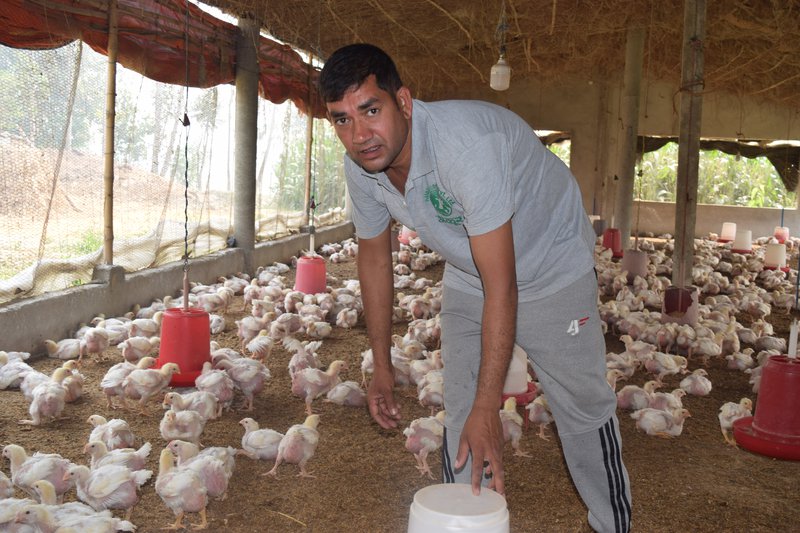
"After completing the training, I acquired new skills and techniques that have helped me increase my income. In comparison to the previous two years, my earnings from chicken farming have risen by 20 percent. The training has been very beneficial for me. I am now able to administer vaccines and basic medicines, as well as recognize symptoms of certain diseases," he stated.
Similar to Shrestha and Khadka, Chimariya is collaborating closely with the Livestock Division of Chandrapur Municipality. "I am actively involved in the municipal platform to offer essential services to other poultry farmers in the region," Chimariya mentioned.
Shrestha, Khadka, and Chimariya, all of whom are returning migrant workers, have exemplified how skills have helped them enhance their income.
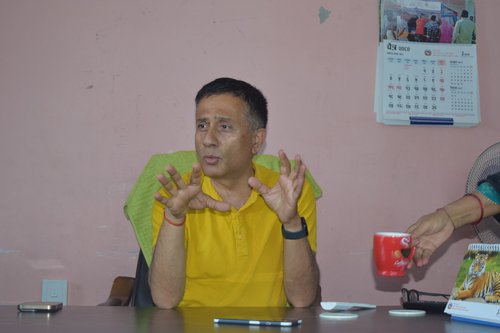
Samriddhi aims to bridge the gap in technical workforce through vocational skills in rural terai and hilly areas of eastern Nepal, where shortages of technical workforce in agriculture and livestock hinder the sectors' progress," stated Project Manager Saroj Prasad Guragain.
Despite various efforts, Nepalese rural farmers still lack access to modern techniques and scientific knowledge. Agricultural vocational skills training plays a crucial role in bridging the gap of technical workforce by equipping individuals with practical skills and knowledge," mentioned Dr. Prabin Manandhar, country director of Helvetas-Nepal.
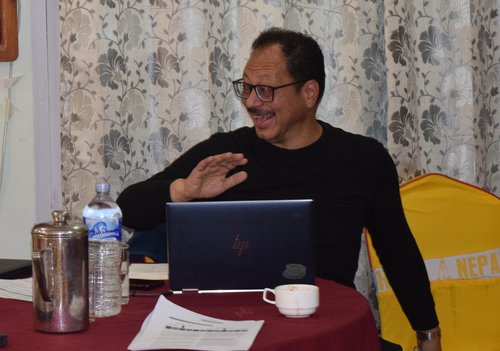
By providing vocational trainings in needy areas, aspiring professionals can be empowered with the necessary expertise to address emerging challenges, adopt new technologies, and contribute to the development of the sector. "In the last two years, we have trained a large number of farmers, mostly migrant workers under CLA.
This training is helping to build a pool of human resources at the local level and support returnee migrants to integrate into society through skills," explained Sandip Poudel, team leader of Helvetas Nepal’s Decent Job component.
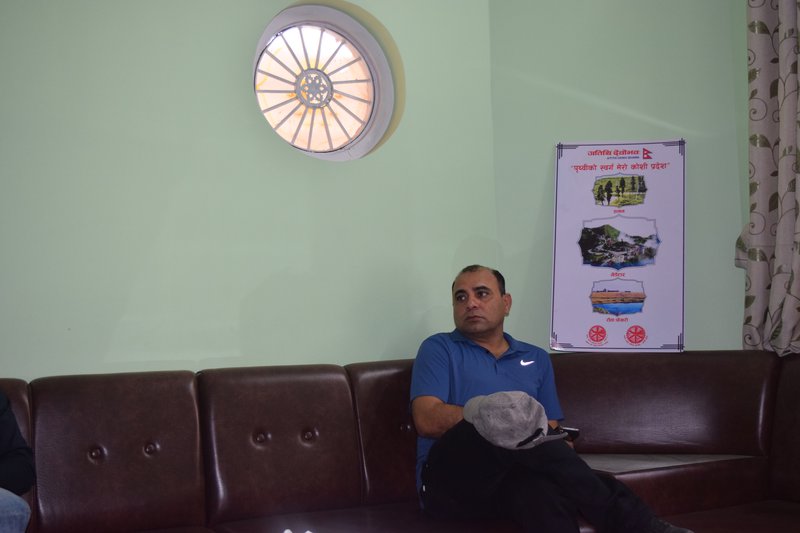
Samriddhi's training has already enhanced productivity, sustainability, and competitiveness, benefiting farmers and their overall economy. In collaboration with the Supply Chain sub-component (Farmer Group Members) - In the year 2023, 972 individuals (280 males, 692 females) were trained in 5 different occupations.Whereas total 2652 individuals have been graduated in 7 different occupations of Agriculture like Village Animal Health Worker, Community Livestock Assistant, Off Seasonal Vegetable Farming, Community Agriculture Assistant, Herbal Farm Worker, Vegetable Farming, Junior Poultry Technician from 2019 to 2023 in total.

Keshab Poudel
Poudel is the editor of New Spotlight Magazine.
- ERC Nepal Is Focused On Expanding Distribution And Transmission To The Private Sector: ERC Chair Dr. Dhital
- Jul 06, 2025
- FOURTH PROFESSOR Y.N. KHANAL LECTURE: Nepal-China Relations
- Jun 23, 2025
- Colonel JP CROSS: Centenary Birthday
- Jun 23, 2025
- BEEN: Retrofitted For Green
- May 28, 2025
- GGGI has been promoting green growth in Nepal for a decade: Dr. Malle Fofana
- May 21, 2025














